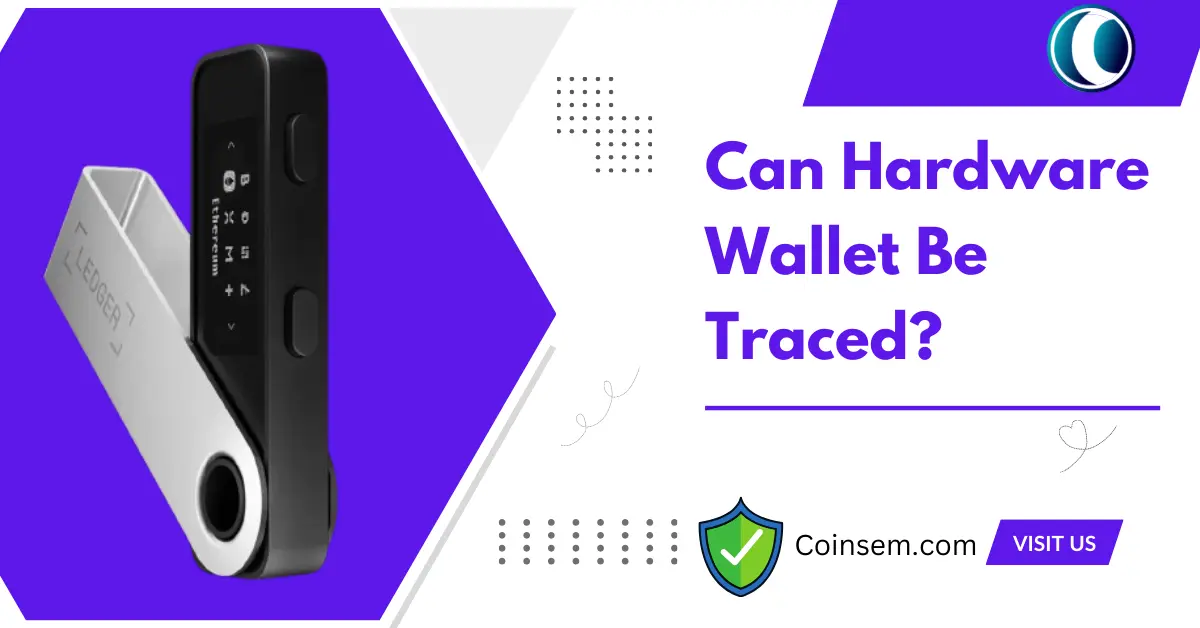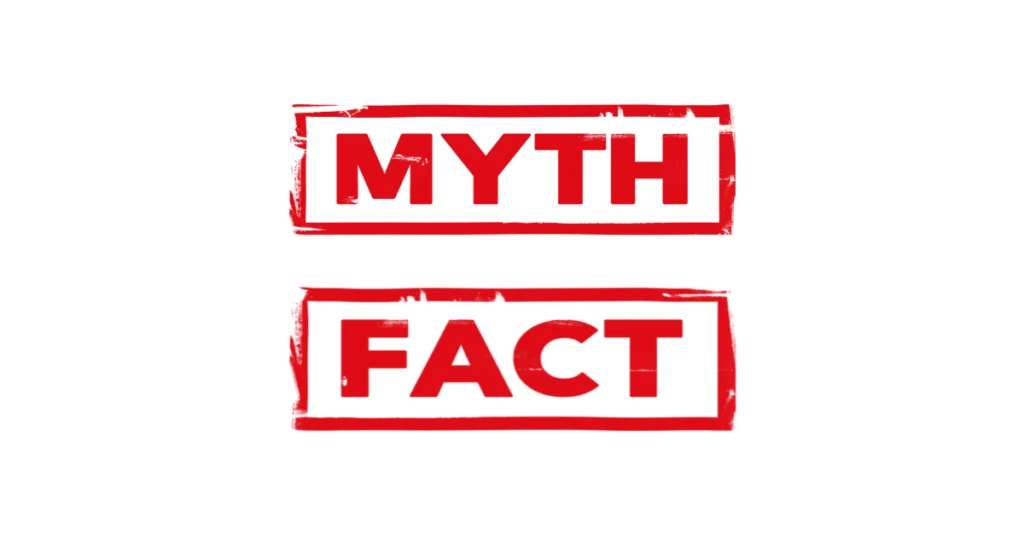
Quick Answer
Hardware wallets themselves cannot be directly traced, as they store private keys offline without revealing personal information. However, blockchain transactions are public, and using centralized exchanges or leaving metadata trails (like IP addresses) can indirectly link hardware wallet activity to a user’s identity.
As cryptocurrencies continue to grow in popularity, investors are placing a high premium on protecting their digital assets. Using hardware wallets is one of the safest ways to safeguard these valuables. Many people are left wondering, though, as privacy issues in the cryptocurrency space grow: Is it possible to track down hardware wallets?
This essay will discuss how hardware wallets work, their traceability, and the privacy dangers of using them. Everything you need to know about hardware wallet traceability will be covered in this extensive tutorial, from the basics of how hardware wallets operate to sophisticated privacy strategies.
What Is a Hardware Wallet?
Hardware wallets are physical items designed to securely store cryptocurrency private keys offline. Hardware wallets protect private keys against viruses and hacking attempts by keeping them apart, unlike software wallets that store keys in potentially dangerous places (such a computer or mobile device).
The Benefits of Privacy in Cryptocurrencies
Privacy is a cornerstone of the bitcoin community. Many consumers prefer financial privacy, which hides transactions from prying eyes, even if blockchain technology offers a clear record.
The crucial question that this raises is whether hardware wallets are indeed as secret as they seem.Whether a hardware wallet can be located and when a user’s activities may be made public will be covered in the sections that follow.
Comprehending Hardware Wallet Operation
Private Key Storage in Hardware Wallets
The private keys of an individual are safely stored in a hardware wallet. When it comes to transaction authorisation, these keys are essential. Crypto money are unavailable without them. Hardware wallets are more resistant to hacking attempts since they are offline.
Hardware wallets are offline.
Ledger and Trezor are examples of hardware wallets that are not online unless they are being used to sign a transaction. Their secret keys are kept hidden from internet dangers, even while they are hooked in.
Using Hardware Wallets for Transactions
A user links their hardware wallet to an internet device in order to start a transaction. The wallet confidentially signs the transaction, which is then sent to the blockchain. An additional degree of protection is added because the private key never leaves the hardware wallet throughout this procedure.
Popular Hardware Wallet Examples
The Trezor Model T, KeepKey, and Ledger Nano S are a some of the most well-known hardware wallets. These gadgets are a popular option for cryptocurrency owners due to their strong security features.
Is It Possible to Track Down Hardware Wallets Directly?
No private information in the wallet
The fact that a hardware wallet doesn’t save any personal data is one of its most important characteristics. Nothing that can be used to directly identify the user is stored in the wallet; just the private keys and public addresses linked to the user’s bitcoin holdings are kept there.
Discuss Wallet Privacy vs. Transparency
The blockchain is visible, while hardware wallets provide strong privacy. The blockchain makes every address used for transactions publicly visible, allowing for the tracking of the money’s movement. However, until further identifying information is made public, this does not automatically link a hardware wallet to a specific person.
Hardware wallets don’t have any tracking features
Tracking capabilities are not included into hardware wallets. Their only function is to securely handle and store private keys offline, protecting users’ valuables. Any issues with traceability would result from other outside variables, which we’ll look into next.
Indirect Tracing of Hardware Wallet Activity
Transparency in Blockchain
Transparency is the foundation of blockchain technology. Anyone may track money from one address to another since every transaction on the blockchain is documented in a public ledger. Although this offers accountability and security, it may also provide a risk if a user’s identity is connected to a particular wallet address.
Connecting Identity to Addresses
In order to purchase or sell bitcoin, users frequently engage with centralised exchanges, even if a hardware wallet by itself does not disclose personal information. These transactions usually demand for KYC (Know Your Customer) data, which may connect a user’s identity to their wallet address. An address linked to a hardware wallet may be able to be linked to the user if it communicates with these platforms.
Hacks and Data Leaks
There are threats from outside sources even with the finest privacy precautions. Wallet addresses can be linked to real-world identities through exchange data breaches, email hacking, or other service provider errors. In these situations, the hardware wallet itself is safe, but the secrecy of its use may be jeopardised.
IP Addresses and Metadata: Can They Lead to Tracing?
Activity on the Network During Transactions
Users’ IP address and information may be revealed when they broadcast transactions online. The network activity may leave traces even though the transaction is safe and offline, signed by the hardware wallet.
Using Privacy Tools to Mask IP
In order to conceal their IP addresses during transactions, privacy-conscious users frequently utilise tools such as virtual private networks (VPNs) or the Tor network. By preventing network activity from being linked to the user, these techniques contribute to an additional layer of privacy.
Risk of Metadata Exploitation
Rarely, skilled attackers may utilise information from network exchanges to connect a user’s actions to hardware wallet activity. Although the hardware wallet itself does not directly threaten consumers, privacy-conscious users should be aware of this external danger.
Common Misconceptions About Hardware Wallets and Tracing

Myth 1: It’s Totally Untraceable to Use a Hardware Wallet
Hardware wallets are a very safe way to store bitcoin, but they don’t give users total anonymity. Because blockchain transactions are public, tracing may be feasible in some situations.
Myth 2: Every trace is detrimental to privacy
Tracing does not always have to be negative. Tracing transactions, for instance, can assist law enforcement in keeping an eye on and stopping illicit activity on the blockchain, such money laundering and terrorism funding.
Myth 3: Hardware wallets offer complete privacy protection
Hardware wallets may not offer complete anonymity, but they do secure users’ private keys. Some user information may still be made public through blockchain transparency, network activity, and interactions with centralised services.
Advanced Privacy Techniques for Hardware Wallet Users
Services for Mixing Coins
Coin mixing services are one approach to obfuscate transaction tracing. These services offer a layer of anonymity by combining a user’s cash with others to eliminate the direct connection between sender and recipient.
Ring signatures and covert addresses
To improve anonymity, certain coins let users employ ring signatures or construct stealth addresses. Each transaction using a stealth address creates a new public address, making tracing more difficult. Ring signatures obscure the true sender by combining several signers in a transaction.
Cryptocurrencies With Privacy Concerns
Some cryptocurrencies, like Zcash and Monero, are made with anonymity in mind. Compared to Bitcoin or Ethereum, these currencies provide higher levels of anonymity by obscuring transaction data using sophisticated encryption algorithms.
Case Studies and Real-World Examples
Blockchain-Traced Transactions
Law enforcement organisations have occasionally tracked illegal behaviour using blockchain analysis. Despite their continued security, hardware wallets are powerless to stop authorities from tracking down blockchain transactions.
Law Enforcement and Blockchain Analysis
Agencies typically rely on advanced blockchain analysis tools to track unlawful activities. These techniques can track the movement of money, particularly when criminals utilise centralised exchanges, but they can not directly attack hardware wallets.
Utilising Hardware Wallets Anonymously
By employing sophisticated strategies like VPNs, currency mixers, and privacy-focused currencies, several users have managed to preserve their anonymity in spite of these instances. Transactions involving hardware wallets may become less traceable using these techniques.
Conclusion
Although hardware wallets provide an exceptional degree of privacy and security, they are not a perfect way to maintain anonymity. Although they guard against hacking and safeguard private keys, users need to be mindful of the traceability concerns related to network activity, blockchain transparency, and interactions with centralised services.
Users should adhere to best practices, which include utilising privacy tools, using decentralised exchanges, and taking privacy-focused coins into consideration in order to maximise privacy. While hardware wallets offer a great deal of security, maintaining total anonymity ultimately calls for a mix of instruments and procedures that go beyond the wallet itself.
FAQs
Is it possible to monitor the transactions in my hardware wallet?
Blockchain transactions are public, but your hardware wallet itself is private. Your transactions may be traced if your wallet address is connected to your identity (for example, through exchanges).
Is personal data stored in a hardware wallet?
No, hardware wallets are limited to storing public addresses and private keys. They don’t have your name or address or any other sensitive information.
Is total privacy guaranteed while utilising a hardware wallet?
Although hardware wallets offer superior security, complete anonymity is not guaranteed. Steer clear of centralised exchanges and think about adopting privacy tools like VPNs or privacy-focused currencies to remain anonymous.
Can my IP address be traced when using a hardware wallet?
If you broadcast a transaction without privacy tools (VPN or Tor), your IP address can potentially be traced, which may reveal your activity.
How can I increase privacy when using a hardware wallet?
To enhance privacy, use coin mixing services, privacy-focused cryptocurrencies (e.g., Monero), stealth addresses, or ring signatures, and always secure your network activity with VPNs or Tor.